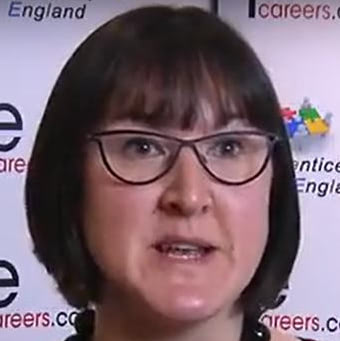New £2bn Kickstart Scheme to create hundreds of thousands of new jobs for young people

#PlanForJobs – THE CHANCELLOR @RishiSunak is set to reveal the biggest package of support for youth unemployment in decades as he sets out the plan to help Britain bounce back from coronavirus
In today’s (8 Jul) Summer Statement, after Prime Minister’s Question Time (PMQs), the Chancellor is expected to announce a three point Plan for Jobs, with a particular focus on the young.
As part of the government’s ‘plan for jobs’ and following the PM’s ‘New Deal’ speech last week, Rishi Sunak will focus on supporting, protecting and creating jobs across the UK as we enter the next phase of recovery following the coronavirus outbreak.
Central to this three-point plan will be a young jobs revolution to get hundreds of thousands of young people into work.
This will include the landmark Kickstart Scheme, a £2bn fund that will create hundreds of thousands of new, high-quality government-subsidised jobs for unemployed young people.
 The Chancellor of the Exchequer, Rishi Sunak, said:
The Chancellor of the Exchequer, Rishi Sunak, said:
“Young people bear the brunt of most economic crises, but they are at particular risk this time because they work in the sectors disproportionately hit by the pandemic.
“We also know that youth unemployment has a long-term impact on jobs and wages and we don’t want to see that happen to this generation.
“So we’ve got a bold plan to protect, support and create jobs – a Plan for Jobs.”
 Sam Windett, Director of Policy, Impetus and Chair of the Youth Employment Group said:
Sam Windett, Director of Policy, Impetus and Chair of the Youth Employment Group said:
“The number of young people claiming benefits doubled between March and May – and that’s just the start of the jobs crisis facing young people. The ‘young jobs revolution‘ recognises this and listens to calls from young people, as well as employers, charities and others in the Youth Employment Group, to place them centre stage in the nation’s economic recovery.
“However, in these plans young people from disadvantaged backgrounds must not be pushed to the back of the queue. We must ensure they can take full advantage of these opportunities, with the full support they need to turn them into lasting, successful careers.”
 Tom Bewick, Chief Executive of the Federation of Awarding Bodies (FAB) said:
Tom Bewick, Chief Executive of the Federation of Awarding Bodies (FAB) said:
“It’s fantastic to see the Chancellor kickstart the economic recovery from Covid, by investing in young people and jobs. It shows that he is willing to use the power of government to get the investment where it is needed most — to individuals and employers.
“What the Federation would like to see next is a stronger link made between the investment in workforce training and quality, regulated qualifications. Skills, skills, skills as well as jobs, jobs, jobs. In particular, we need to learn the lessons from the past, with failed schemes like Train to Gain, which resulted in massive deadweight as employers claimed monies for training they would have done anyway. We genuinely have the opportunity to emerge from this crisis in a better position than where we started: better skills, quality jobs and improved livelihoods for all.”
 Association of Employment and Learning Providers Chief Executive Mark Dawe says
Association of Employment and Learning Providers Chief Executive Mark Dawe says
“AELP proposed that half a year’s salary should be paid to support young people into work and so we are very pleased to see this.
“We hope employers who take advantage of the scheme will also put the young recruits onto an apprenticeship to receive good quality training as well as a job.
“We look forward to seeing the rest of the details of the Chancellor’s package on Wednesday.”
 David Hughes, Chief Executive of the Association of Colleges said:
David Hughes, Chief Executive of the Association of Colleges said:
“With today’s announcement of a £2bn work scheme for young people the Chancellor has put into place measures which can support those most at risk of long term economic scarring. We have continuously said that it will be young people that are hit hardest from the pandemic, today’s commitment, if implemented quickly and effectively will help to protect their future prospects.
“With the Chancellor announcing that the first young people could be employed from the autumn, it has the potential to provide a safety net to those at risk after the furlough scheme comes to an end. Young people are employed in sectors that have been disproportionately affected by the lockdown, this is the guarantee they needed to give them hope as the labour market reopens.
“It’s important that the Chancellor confirms in his speech that the scheme will include training or leads directly onto apprenticeships and proper jobs. Government needs to ensure they are providing young people with not just a temporary job but the opportunity to gain valuable skills for their futures to prevent this from just being a cheap labour alternative. This unprecedented challenge requires an unprecedented solution and I hope that this is the start of bold reform for education, skills and jobs.”
 Fiona Aldridge, Director for Policy and Research at Learning and Work Institute:
Fiona Aldridge, Director for Policy and Research at Learning and Work Institute:
“Young people face a higher risk of unemployment during recessions. During the last recession, youth unemployment reached four times the level of unemployment for those aged 25 and over, and the aftereffects of that crisis meant they were already earning less at this stage than previous generations.
“Today’s young people face the double whammy of a disrupted education and a weaker labour market. In our recent report, Emergency Exit, we called on the Chancellor to respond to this challenge by introducing a Youth Guarantee to ensure all young people can access either a job, an apprenticeship, or an education or training opportunity.
“The announcement of a £2bn kickstart scheme to fund work placements for long-term unemployed young people is extremely welcome. We look forward to seeing more detail on how it will work, and hope to see these placements form part of a wider package for of training and job search to ensure we avoid a ‘pandemic generation’ of young people.”
 Helen Barnard, Deputy Director of Policy and Partnerships, Joseph Rowntree Foundation said:
Helen Barnard, Deputy Director of Policy and Partnerships, Joseph Rowntree Foundation said:
“The Chancellor is absolutely right to invest in young people going into the labour market during this storm – early unemployment can hold people back from decent work and lock them in poverty for years. However, it is crucial the government focus on the quality of jobs, not just the quantity, avoiding the mistakes of the last recovery which saw high unemployment but gave us a decade of rising in-work poverty, stagnant pay and poor productivity. The Chancellor must invest in skills and employment support which prioritises matching people with good quality jobs with decent pay, security and opportunities to progress. Alongside the commitment to support young workers, the government should also bring forward plans to support other groups likely to be hit hard by unemployment – women, BAME people and those living in areas with weak labour markets”.
 Scott Parkin, Chief Executive of the Institute of Employability Professionals said:
Scott Parkin, Chief Executive of the Institute of Employability Professionals said:
“As part of the Youth Employment Group we have been calling for measures that will effectively support young people so we are pleased to see that those in our communities that are already hardest hit by this crisis and the subsequent economic challenges are going to be supported in this way.
“The Institute of Employability Professionals looks forward to the Chancellors‘ speech, providing more details on government plans in a number of important areas of policy”.
 Susanna Lawson, CEO and co-founder, OneFile, said:
Susanna Lawson, CEO and co-founder, OneFile, said:
“It is brilliant to see the Chancellor backing the opportunities for young people who are much more likely to be displaced during the pandemic. Millions of all ages will be made redundant in the coming months and all looking for the slimmer number of vacancies available.
“The more experience we can give 16-24yr olds in the work place the better to prevent this affecting generations to come. Hopefully in the announcement on Wednesday there will be details on how to move the placements onto more permanent apprenticeships and jobs.”
 Elizabeth Taylor, Chief Executive, ERSA, said:
Elizabeth Taylor, Chief Executive, ERSA, said:
“Looking forward to finding out the full information on the employment offer to young people. It is vital that these offers start with objective l advice and guidance to ensure each young person takes up the right offer for them, that will start them on a career, leading to sustained employment and progression.
“Great work by the Youth Employment Group, a coalition of employability and youth practitioners, with input from young people, the group has the detailed actions needed to make this work.”
Dean Sadler, CEO and Founder at TribePad, said
“The younger generation will bear the brunt of COVID-19. Kept out of the classroom for four months, their exam grades will now be based on averages instead of how they actually perform in exams. Their futures will largely depend on this and they will continue to miss out on vital life skills and learnings while out of the classroom.
“With universities only offering online classes, many school leavers are putting off going to university for a year, so that when they do, they can get maximum value. And unfortunately, we will see fewer graduate schemes on the job market – businesses cannot afford to hire people to train up, so they will look to employ candidates who already have the skills they need. This creates the perfect storm for young people – competition will be high and they may get stuck in low-skilled, low-paying jobs .
“There will be a lot of businesses that survive when they really shouldn’t. These so-called “zombie businesses” will not help the economy bounce back at all. Capital should be invested in those dynamic companies that can add real value to the economy and provide jobs for younger workers.
“The government and private enterprise must look after the future of the workforce. Not providing support to young people in the coming months will do more harm than good in the long-run for the economy.”
Tomorrow after PMQs I will update Parliament on the next phase of our recovery from coronavirus. #PlanForJobs pic.twitter.com/EUgYks2ji1
— Rishi Sunak (@RishiSunak) July 7, 2020
Under the Kickstart Scheme, employers will be able to offer a six-month work placement for young people aged between 16-24 who are claiming Universal Credit (UC) and at risk of long-term unemployment
The Government will fund each “Kickstarter” job covering 100% of the National Minimum Wage for 25 hours a week – and employers will be able to top up this wage. The jobs will give young people the opportunity to build their skills in the workplace, and to gain experience that will improve their chances of going on to find long-term sustainable work.
Young people are more likely to be furloughed, and with a quarter of a million more people aged under 25 claiming unemployment benefits since March, young people are leaving education into an extremely difficult jobs market.
The Chancellor is also expected to announce:
- a £111 million investment to triple the scale of traineeships in 20-21,
- an extra £32m for the National Careers Service to provide tailored jobs advice to a quarter of a million more young people, and
- £17 million of funding to almost triple the number of sector-based work academy placements in 2020-21
Three Point Plan for Jobs
- Job Retention Scheme – The first phase, which began in March, focused on protection, with one of the largest and most comprehensive economic responses in the world.
- New Deal Plan for Jobs – The Chancellor’s plan for jobs and the PM’s ‘New Deal’ speech last week will form the second phase of a three-phase strategy to secure the UK’s economic recovery from coronavirus.
- Spending Review – The third phase will follow in the autumn with a Budget and Spending Review.
Around 700,000 young people are leaving education this year, and will be entering the labour market at an extremely difficult time.
As of May there were almost 500,000 young people aged 24 and under on UC. That figure increased by a quarter of a million in just two months.
The Kickstart Scheme will be open to funding applications from August 2020, and the first jobs will begin in the autumn.
The Kickstart Scheme will be GB-wide, and NI will receive additional funding in respect of the scheme.











Responses